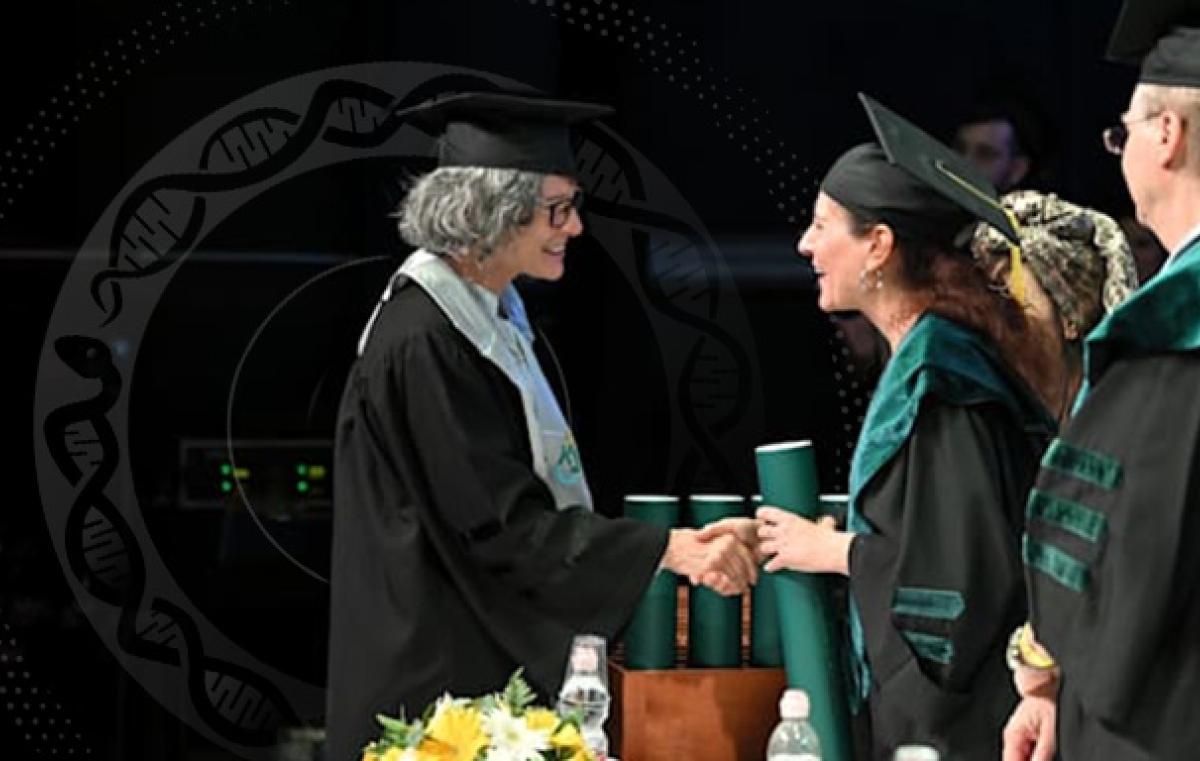Doctor at 60
From urban planning to forensic medicine, Binat Schwarz, a former high-ranking official reinvented herself, overcoming age barriers and societal expectations to pursue a second career in the depths of the morgue

Binat Schwarz was the head of the Planning Administration, no one expected the new chapter in her life: medical studies and a specialization at Abu Kabir, which she will complete at retirement age. In a special interview originally published on Globes, she talks about the fulfilling work with the deceased, the advantages of a late second career, and why it's all about karma: "I discovered that I come from a family of gravediggers."
At 54, when most of us start dreaming about retirement, Binat Schwarz started anew. Last week - approaching 60 and a grandmother to a one-and-a-half-year-old granddaughter - she was certified as a doctor, in a ceremony of the Faculty of Medicine at Bar-Ilan University in Safed, along with 133 other graduates. And if that's not enough, of all the specializations the medical world offers, Schwartz decided she sees her future at the Center for Forensic Medicine in Abu Kabir, on the somewhat dark side of "treating" the deceased.
"In 2016, after I finished the significant role in the public sector, I took a time out to think about what's next," she tells Globes. "It was immediately clear to me that I would start something new and that I wasn't going to stay in the field of construction or planning as some super-consultant or something similar. I knew one hundred percent that I was going to do something new from scratch."
How hard was it to turn the desire into reality?
"Anyone with a first degree can apply to the four-year track (a special program for medical studies in four years, instead of six), which was then quite new. But the threshold condition is 80 credit points in various subjects related to medicine. The problem is that I studied geography and general studies in my first degree and I have a master's degree in geography - nothing related to the medical world. I entered a preparatory program at Bar-Ilan, to study with boys and girls who dream of medicine. I did a year of completions and courses in biochemistry, cell biology, physiology and more, without knowing if I would be accepted at all."
"There are also advantages to age. I think that the process I went through in my studies was etched in me as a good experience and not stressful or competitive. I didn't need to prove myself. I have the ability to deal with pressure, communication skills, self-confidence, understanding of processes and generally a slightly broader and therefore more relaxed view on life."
Why did you choose forensic medicine?
"I saw that it's a world of silence. These people have no voice. People who were murdered, people who died at home and for three weeks no one knew they were dead because no one called them and didn't look for them, people who commit suicide, children who died from neglect. This is an entire population that is largely invisible to us, for whom we at the institute take part in doing justice. We can answer the questions of why they died, and who took part in their death, who might be guilty of their death and if their death could have been prevented."
"Dealing with death is very rewarding, at least for me. Seeing the dark side brings a lot of light into life, in reverse. There is a lot of power in accepting death and incorporating it into your daily life. My mechanism is to connect fully, to surrender to death. I chose this profession not out of heroism and not because there's a shortage of doctors, but because there's something very powerful about the end of life, especially the end of life of people who aren't seen."
Image credit: Globes